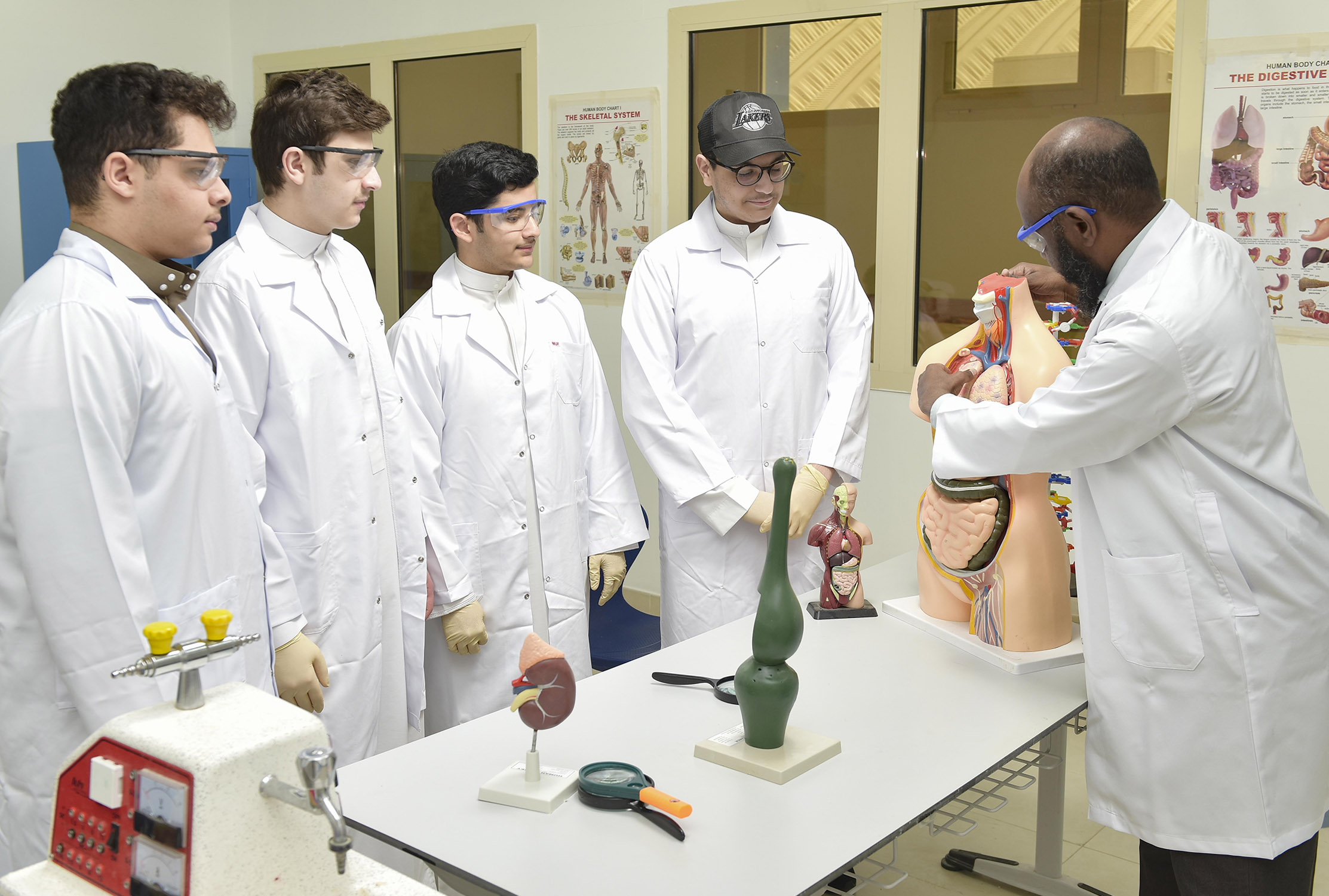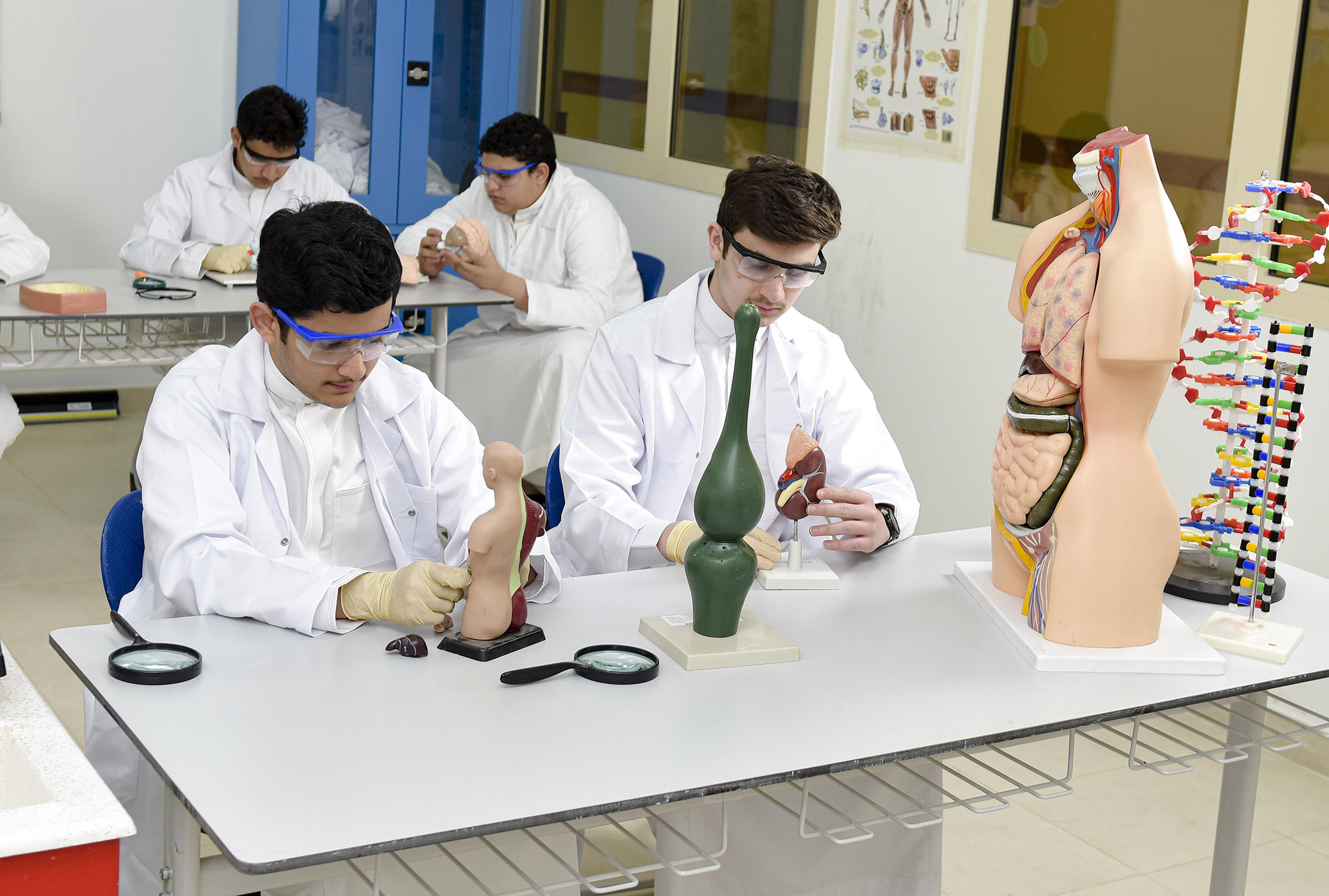The IB Diploma sixth form programme requires a period of two years to complete. The Diploma consists of two distinct but related parts: Core elements and Subject groups.
- The 3 IB Diploma Core Elements are:
- Theory of Knowledge , in which students reflect on the nature of knowledge and on how we know what we claim to know.
- Extended Essay , an independent, self-directed piece of research, finishing with a 4,000-word research-style paper.
- Creativity, activity, service in which students participate in projects related to those three concepts.
- IB Diploma six subject groups and subjects offered at KAS IB Diploma Programme:
- DP language and literature group: Language A: literature SL & HL
- DP language acquisition subject group: Language B SL & HL
- DP individuals and societies subject group: Business management SL/HL , Economics SL/HL, Global Politics SL/HL
- DP sciences subject group: Biology SL/HL, Chemistry SL/HL , Computer Science SL/HL , Physics SL/HL
- DP mathematics subject group: Mathematics: Analysis and Approaches SL & HL , Mathematics: Applications and Interpretation SL & HL
Each subject group consists of series of subjects at: Higher level [HL] and Standard level [SL]
Each HL subject requires 240 Hours of teaching, while each SL subject requires 150 Hours over the two years period of study. Additionally, TOK requires 100 hours of teaching time, while students are primed to experience the three strands of CAS (creativity, activity, service) over the duration of their DP studies.
Conditions for a full Diploma qualification:
- Condition for the Diploma qualification needs six subjects, one from each group: 3HL & 3 SL.
- Student may select a 6th subject from other groups if they are not keen to study Visual Art.
- Performance in each subject is graded from 1 – 7. [grade 7 being highest, 1, the lowest]
- Obtaining 24 score points out of 45 is required for the award of a Diploma, 45 being highest.
- CAS must be completed by the end of the second year of study.
- Specific conditions for Extended Essay and Theory of Knowledge must be met.



